Like many folks this year, I have been cooking a lot. Though I’ve always loved food and have had a deep and abiding interest for the art of cooking, I’ve definitely pushed myself to learn how to do a lot of things from scratch in the kitchen this year. From cooking a decent CTM to a respectable pie, I have hit a lot of my personal milestones over the past few months.
One of the unforeseen consequences of my culinarily driven efforts to stay sane during quarantine this year has been a foray into testing out purpose driven kitchen devices. Though not quite single use (and actually pretty versatile in their own way) devices like the Ooni pizza oven and the Otto Grill have found their way into my ad-hoc outdoor kitchen and I have had a pretty enjoyable time pushing and prodding on them while simultaneously upping my own cooking game.
Which leads me to this review of the Otto Wilde Grill.
What is it?
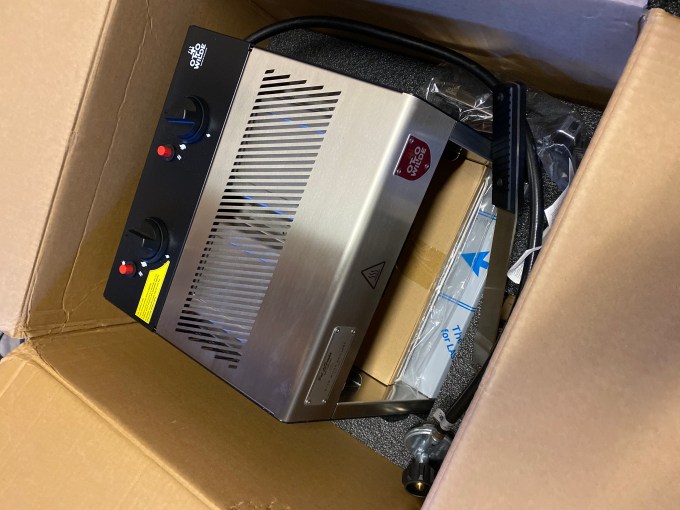
It’s a 16x17x11” self-contained propane broiler that features two top mounted burners that can reach temperatures of 1,500 degrees F. There is an adjustable grille and a catch pan for grease and a dual use arm that acts as a grille tool and a wrench to adjust the distance between the burners and your food.
It’s designed to cook steak that gets you as close to steakhouse taste and texture as possible. It does so by mimicking the kinds of top mounted broilers that you’ll find in many commercial kitchens.
I’m not going to bury the lede, this thing is $1,000. If you don’t have a G to drop on a cooking thing of any sort, then read on for entertainment and edification. If you DO have that much to spend (maybe) and are wondering why the hell you’d want to, and if you should I think I can deliver those things for you here.
But, why
After my Ooni review, Otto Wilde Grills reached out to see if I wanted to try out their over-fired broiler. I love steak, especially steak at the perfect temp with a restaurant-style carmelized crust. I’ve been able to get decent results over the years with my standard grill and a cast iron skillet — and more recently have been very happy with the sous vide bath + skillet method.
But there is just something about the somewhat violent, crispy, high heat broiler style finish that you get at a steakhouse that I have not been able to duplicate at home.
Very specifically, the reason that a steakhouse steak hits your table with a carmel crust and nicely distributed interior juice is something called the Maillard reaction. Maillard reactions are different than caramelization, which is basically the heat driven decomposition of sugar. Instead, it is the breakdown and combination of sugars and amino acids. It happens during cooking in many foods but is most important in great tasting meat and bread. It begins to occur in most foods above around 280 °F or so but even higher temperatures can emphasize the resulting effects to the point where you get this deliciously beautiful light brown crust that adds a crunch and even slight sweetness to your foods, especially meats.
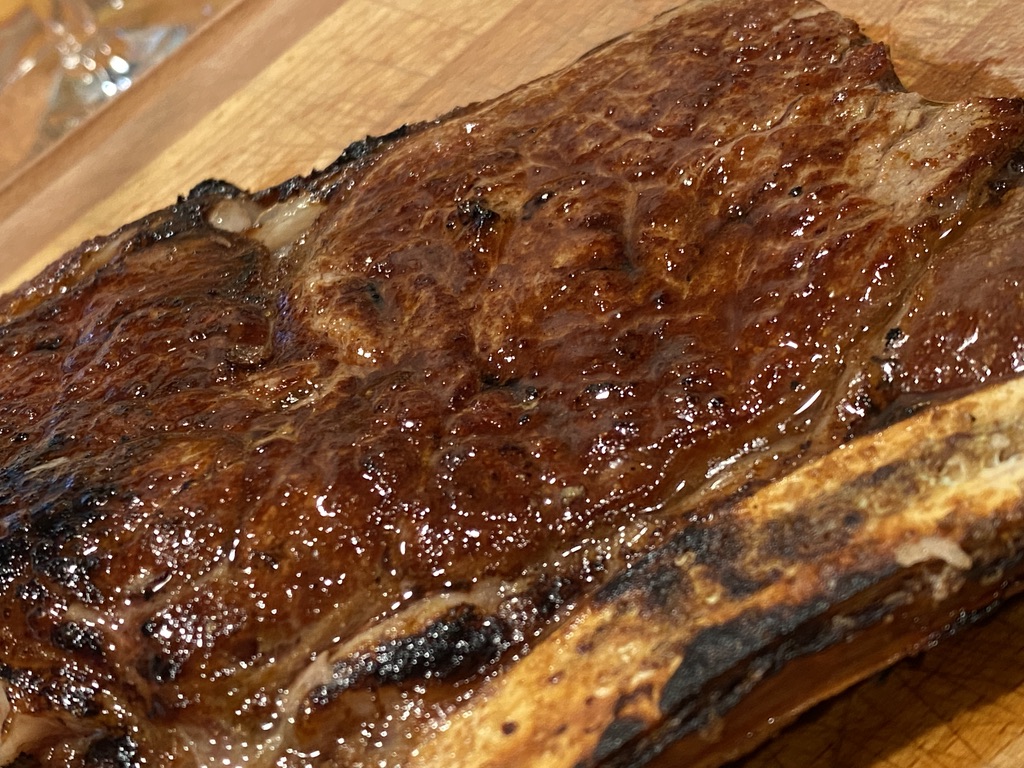
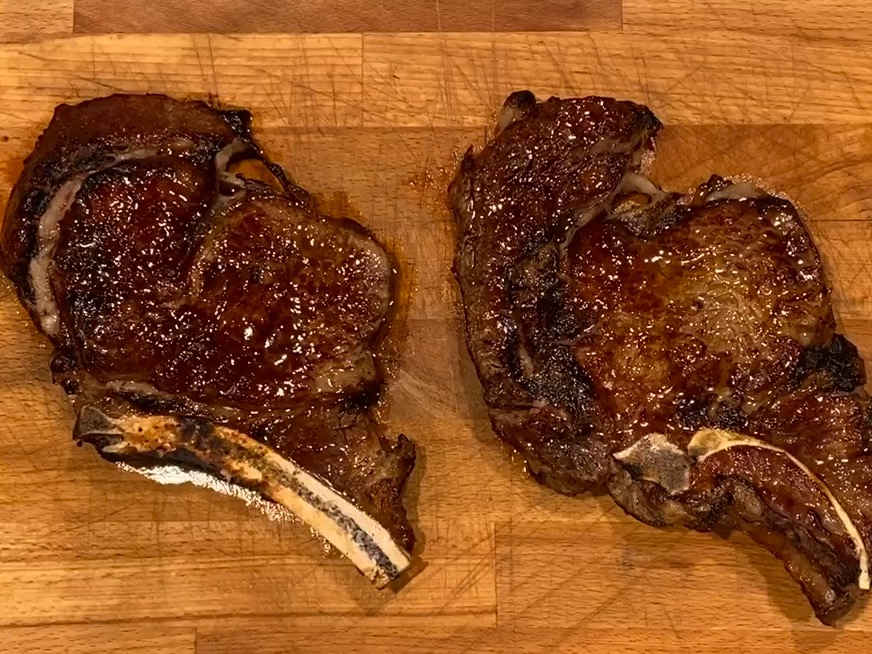
The trick of at home Maillard reactions in steak is how to activate and sustain the process long enough to create the desired result while simultaneously not over-cooking your meat.
A note: I am reviewing the Otto grill several years after it was initially released (though they do have a new ‘Pro’ model with a really handy drawer and a whole grill system hitting the market). But when they offered to send me one I went and checked out the reviews that were out there. Gonna be honest, even the ‘good’ reviews are pretty poorly done. Either they are done on YouTube by clear grillmasters that assume people know a lot about grilling and don’t really explain much beyond running a steak or two through the grill or they are on…ahem…other sites where they quite clearly have no idea what they are doing. Don’t get me started on the results in some of those reviews. I can’t even. I’m not going to blow up anyone’s spot specifically here, but as a bit of meta I can just say that the current state of food appliance reviews is really, really bad. I think a lot of people do pretty decent jobs reviewing, say, phones or game consoles. Not so much in the kitchen.
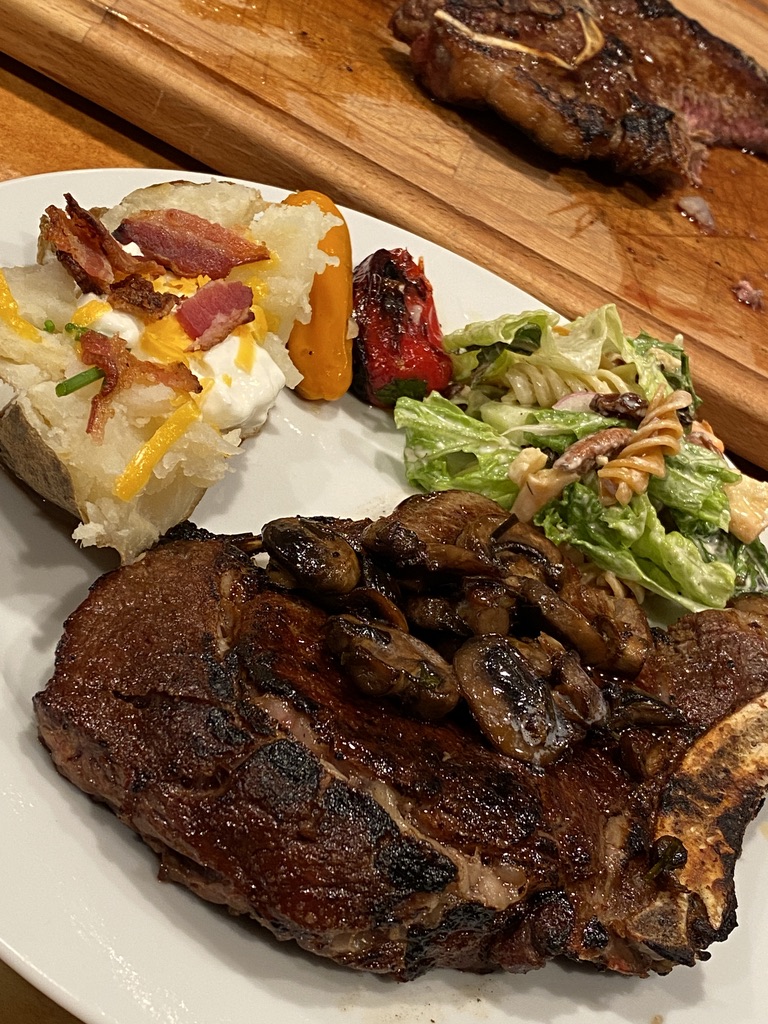
Anyway, over-fired broilers are extremely common in commercial kitchens, where ‘infrared’ heat (basically high heat gas shot through pinholes in a ceramic sheet) and radiant heat are primary options. The Otto Grill is an infrared style OFB, which means that it can get to high heat extremely quickly (about 3-5 minutes to 1,500 degrees) and that it cooks VERY fast because most of the heat goes right to the meat.
Fast, high heat cooking means quicker crust, less gas waste and most importantly, juicier steaks that have less time to dry out.
A quick how-to
One of the things that I found surprising when I started researching the Otto was that there are very few direct examples of how to cook a steak with it. To that end, here is my basic process for most steaks. Prior to beginning any of this I salt my steaks generously with a nice sea salt. I do not use anything else personally and I would say beware of any rubs with pepper or other ingredients because they can burn quickly in an oven as hot as the Otto.
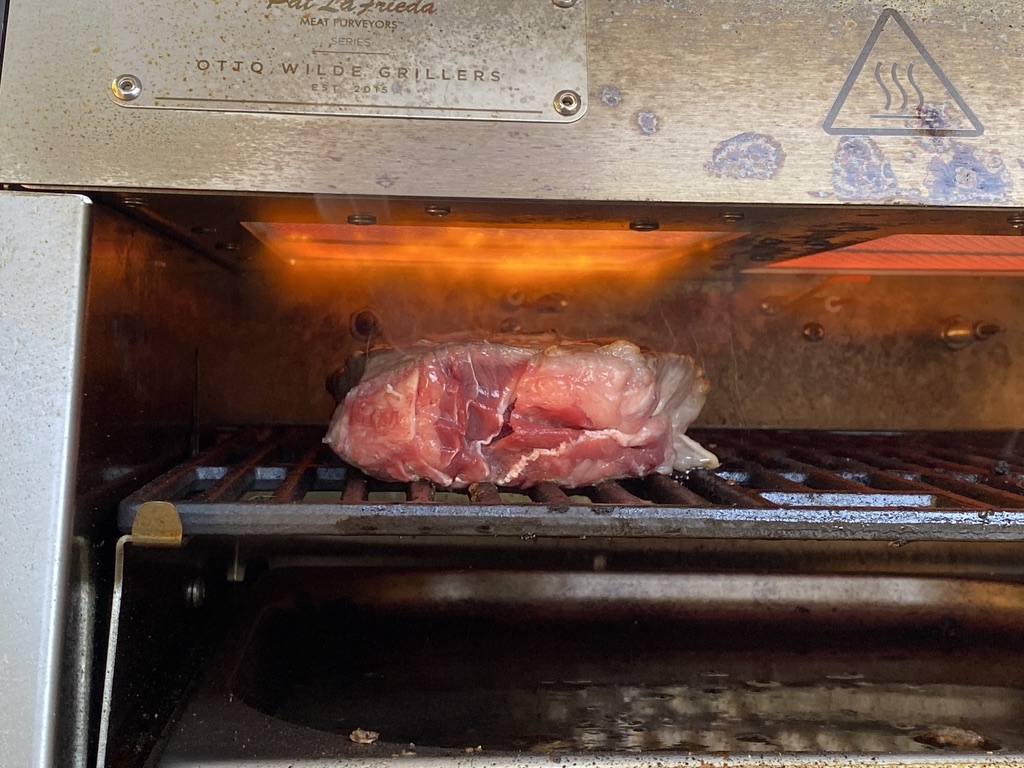
- Fill the water tray halfway. This prevents grease fires and makes cleanup better, as well as introducing a bit of moisture to the cooking environment.
- Pre-heat the Otto at full power. This takes as little as 3 minutes and no longer than 5 from zero to 1,500 degrees.
- Remove the grille and place the steak(s) onto it oriented so that they are covered by one or both burners.
- Pop it back in and use the adjustment lever to move them within about a half inch of the bottom edge of the flame at the top. You should see a roiling, sizzling field of flame turbulence just above the top surface of the meat.
- Cook for around 60 seconds to 90 seconds.
- Lower, remove, and flip end over end to sear the other side.
- Raise, and cook for another 60-90 seconds.
- At this point, if your steak is 1” thick or under and you are ok with medium rare, you are likely done. Remove it and check the temp with a meat thermometer to see if it is at your desired temp.
- If it is a thicker cut, reduce the heat to ¾ on both burners and drop the grill to the bottom position. Rotate every 2 minutes and periodically check the meat temp (I do it out of the oven because it’s so hot in there) until you hit desired done levels.
- Remove the meat to rest, turn off the Otto and let cool somewhat to clean the tray and grille.
This method has enabled me to cook thinner cuts in as little as 3-5 minutes. Larger cuts may require careful rotation and positioning.
Steak results
I have cooked a lot of steaks on the Otto over the last couple of months. I’ve done ribeye, sirloin, filet mignon, hangar and T-bone.
I cooked a wide variety of cuts at a number of different levels of marbling. The fattier cuts obviously benefited much more from the Otto’s high-temp cooking. The way that it absolutely pulverizes fat allows it to crust perfectly across the surface without creating a dry, crumbly texture. Instead it’s crispy and moist at the same time.
Also, because it’s a top firing burner, the fat seeps downward, through the meat instead of outwards. The resulting exterior is super delicious and produces a nearly perfectly sized rind every time, leaving a to-temp interior.
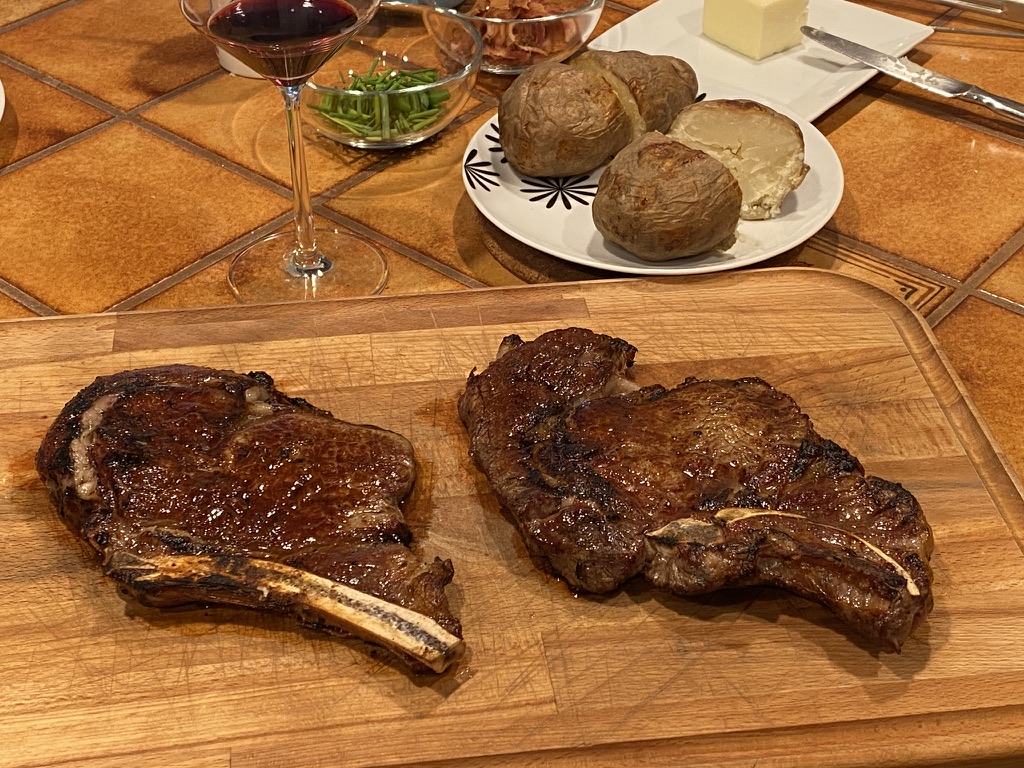
It took me a few steaks to get the methodology above down. I burned a few, for sure. This thing is crazy hot and the times involved are hard to wrap your head around at first. But once you have your rhythm, the Otto Grill cooks an insanely tasty steak from nearly any cut or quality of meat. Otto sent me a few frozen steaks to try, but I’ve mostly cooked my own meat purchased locally, which was much better. But even thawed meat was treated pretty well by this grill, the crust makes up for a lot when you’re working with so-so meat.
For those of you that know steak, you may be wondering whether it is good at grassfed beef. Yes! It’s actually super killer for grassfed because the high, high heat makes the sear happen super fast, locking in the juice which is at a big premium in leaner grassfed cuts. Grassfed suffers with long cook times, which you won’t find in the Otto. You can cook a very nicely juicy medium rare grassfed cut here.
One major comparison that I think many people who might be in the market to buy this thing will be interested in is how it stacks up against the very popular sous-vide + cast iron sear method also referred to as reverse searing. Cooking your steak in a water bath to achieve precise interior temp and then searing it for crust and flavor has become uber popular for at home cooks in recent years due to the wide availability of consumer grade immersion circulators.
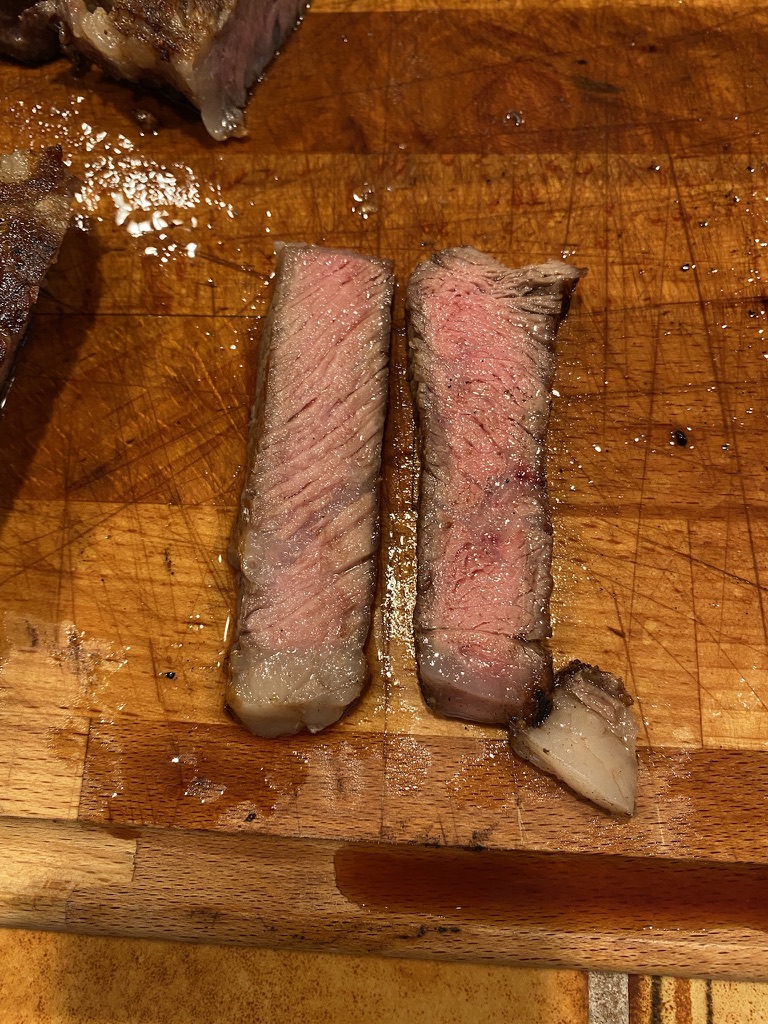
Sous-vide + sear on left, Otto Grill on right
I’ll say this as simply as possible: I think you can get extremely similar results with sous vide + cast iron, with some pretty straightforward caveats.
- Your cast iron has to be super hot. I’m talking 2,000 BTUs and up of gas burner hot. You need that high, hot heat to get that sear to lock in your juices and render your fat quickly.
- You’re searing it from the bottom by contact rather than the top by proximity, which means that fat will have a tendency to boil away and you need to continuously circulate your juices using butter or another oil.
- Smoke and spatter. You’re going to generate plenty of both on a skillet.
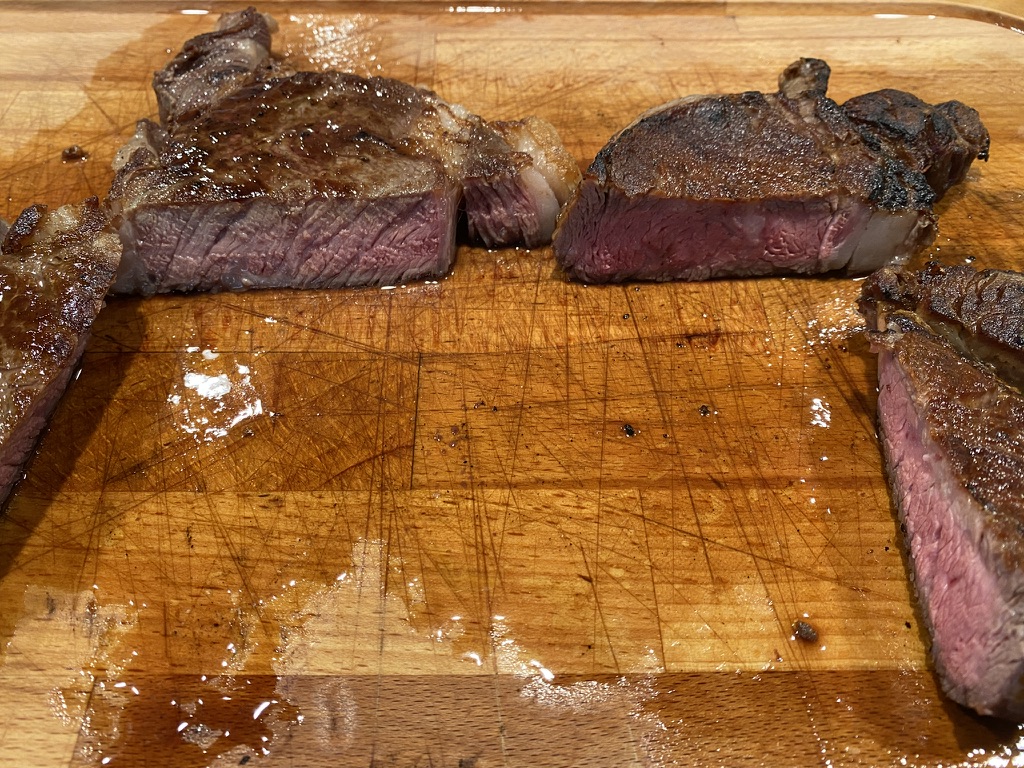
Sous-vide + sear on left, Otto Grill on right
If you’re really used to reverse searing and you love your results, I still do think there are a couple of areas where the Otto can up your game a bit, but the general taste and satisfaction will be in the ballpark. One thing I did try which worked out well is a tri-tip — a huge cut that is popular in California that would not do well normally here. I did a sous-vide bath + reverse sear in the Otto and those turned out really lovely.
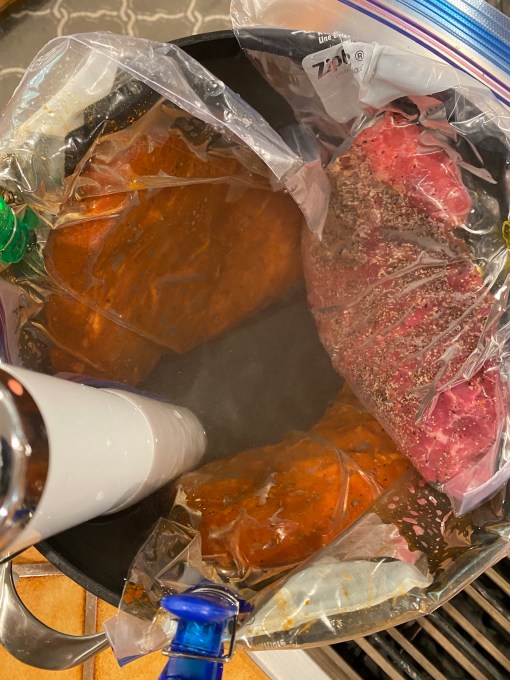
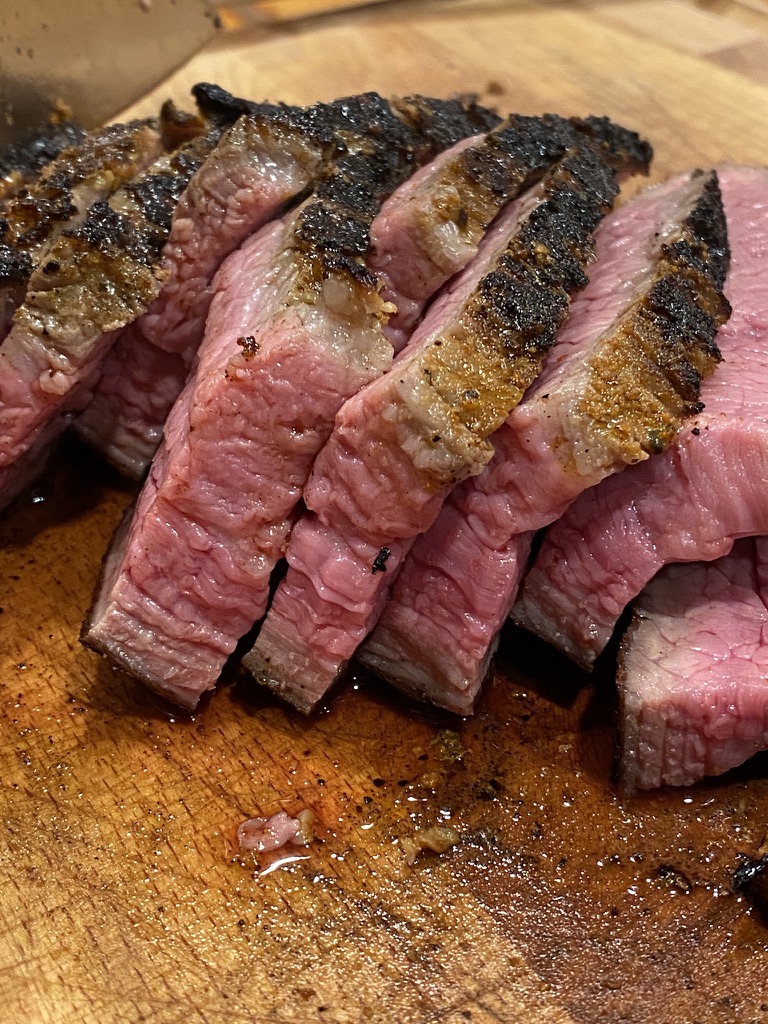
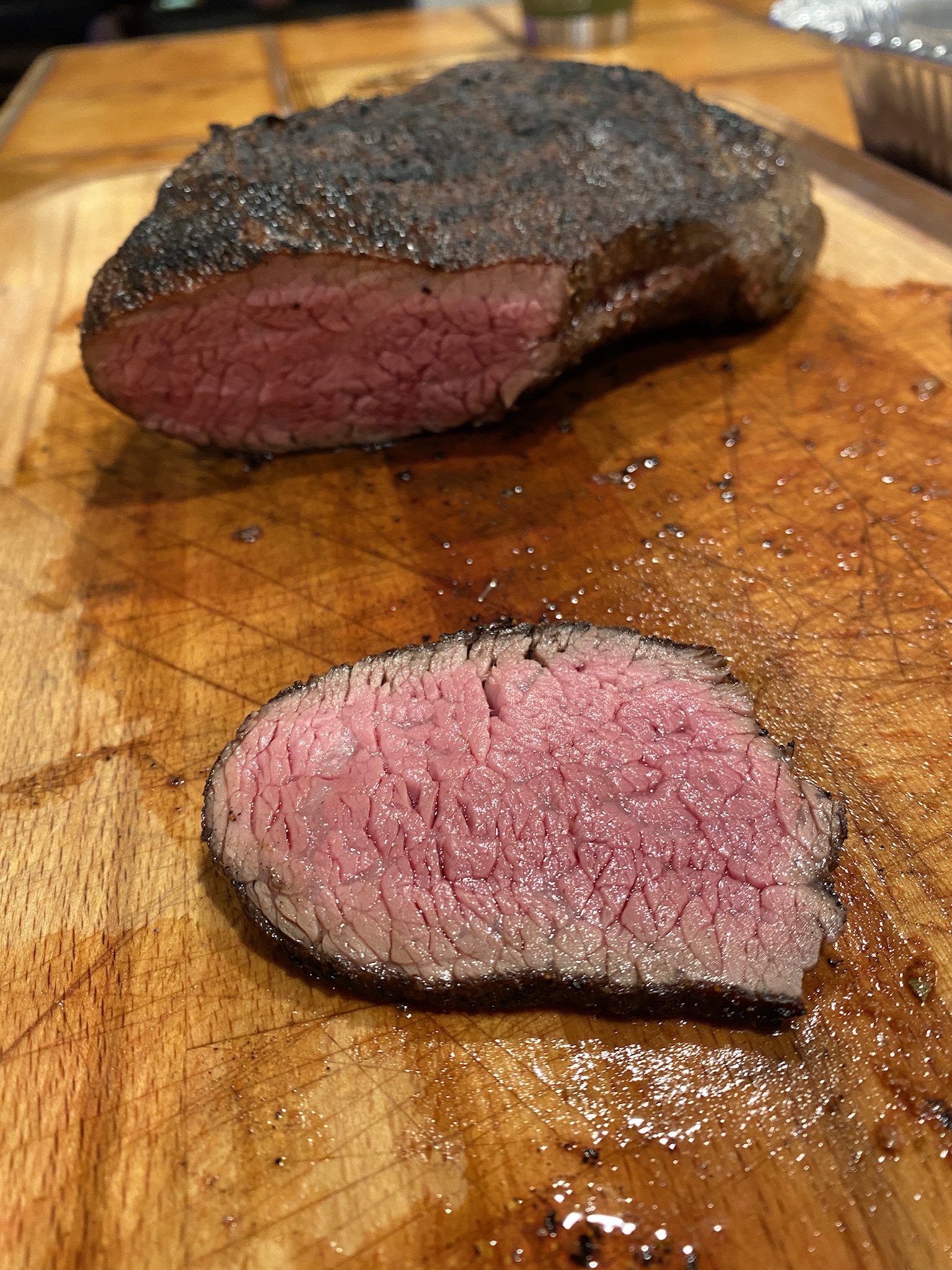
I liked the Otto’s more delineated rind that creates that nice flavor seal along the interior edge of your cut of meat. I also think that it can be very easy to over cook thin steaks while searing if you can’t get your skillet super hot.
The biggest overall benefit of course, is time. If you write off the resting time to bring your meat to room temp, which is passive cooking time, then you’re looking at anywhere from 1-3 hours to sous vide a thick cut steak. The Otto heats in 3 minutes and cooks in anywhere from 5-10 minutes. It’s a huge time savings for equal or better results.
One design consideration worth mentioning is that because there are two burners with a dead space in between, you must shift larger cuts to allow them to sear evenly if they span two burners. I wouldn’t call it a flaw as it is definitely pushing it to shove a wall-to-wall steak in there. I would love to see future versions of the oven reduce the space between the burners in order to allow more coverage for bigger steaks. This is a non factor if your steak fits under one burner, and most do in general.
The catch pan, by the way, is pretty instrumental. Filling it with water reduces the chances that your fat will catch on fire, burning portions of your steak, and it makes cleaning up super easy as you can sluice out the still warm grease water and then brush it clean. I will note, at the risk of some ribbing, that I forgot to put some water in the pan once and may have added some…decorative smoke work to my grill’s face. Cook outdoors.
Pizza
Otto says you can make pizza in this thing too — and they even make a stone and peel. Well, you can, but I’d say how enthusiastic you get about it is going to sort of depend on what your standards for pizza are.
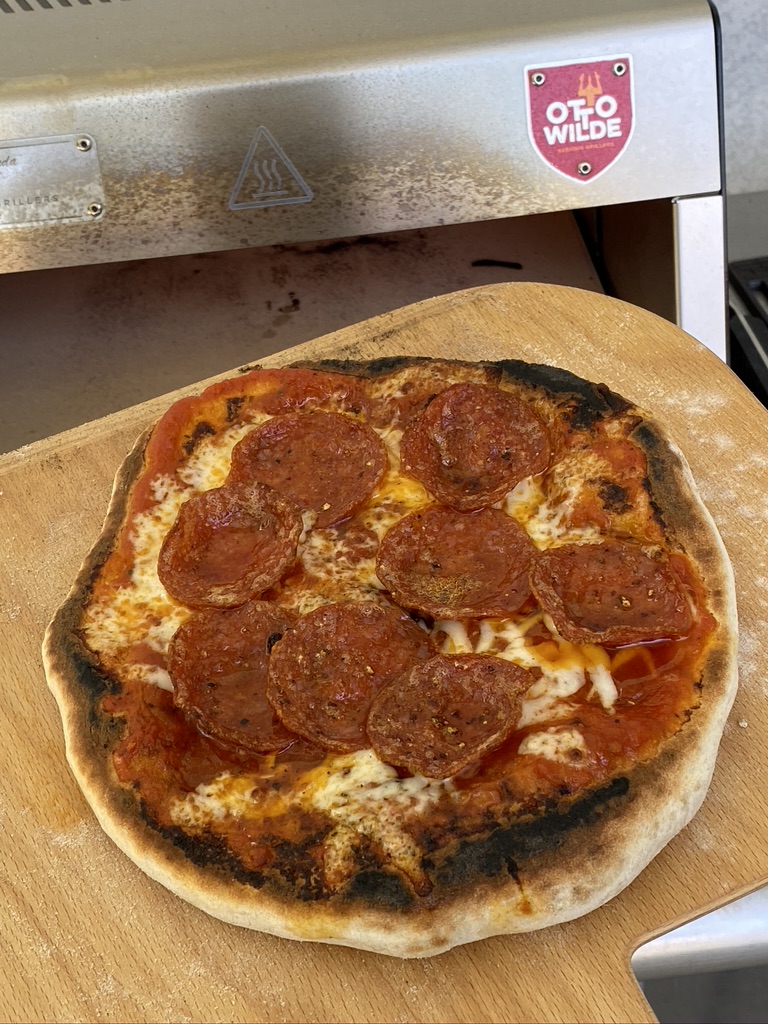
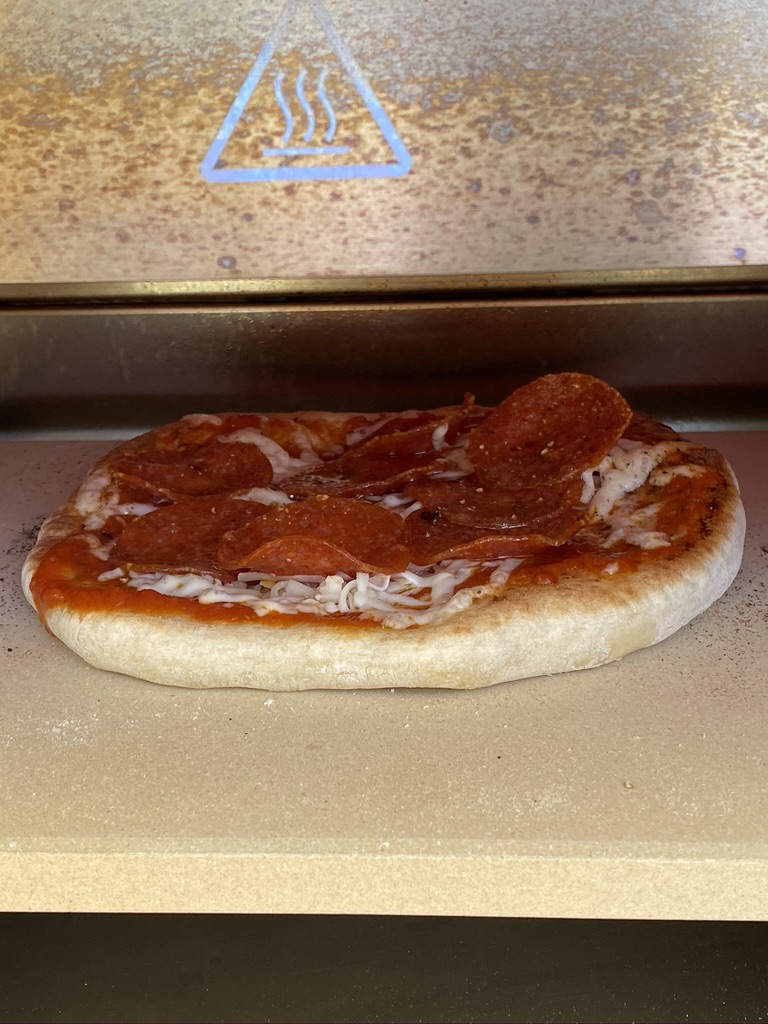
The pizzas that I made in the Otto with the stone are, uh, they’re fine I guess. It’s absolutely, totally possible to do a little personal-sized pizza in the Otto, especially if you par bake the crust. But anything you do in here is going to pale next to the Ooni. I’d actually much rather just gin a up a little pan pizza that you can do in your regular home oven. There are a lot of reasons to buy the Otto, but pizza should not be a primary one, in my opinion.
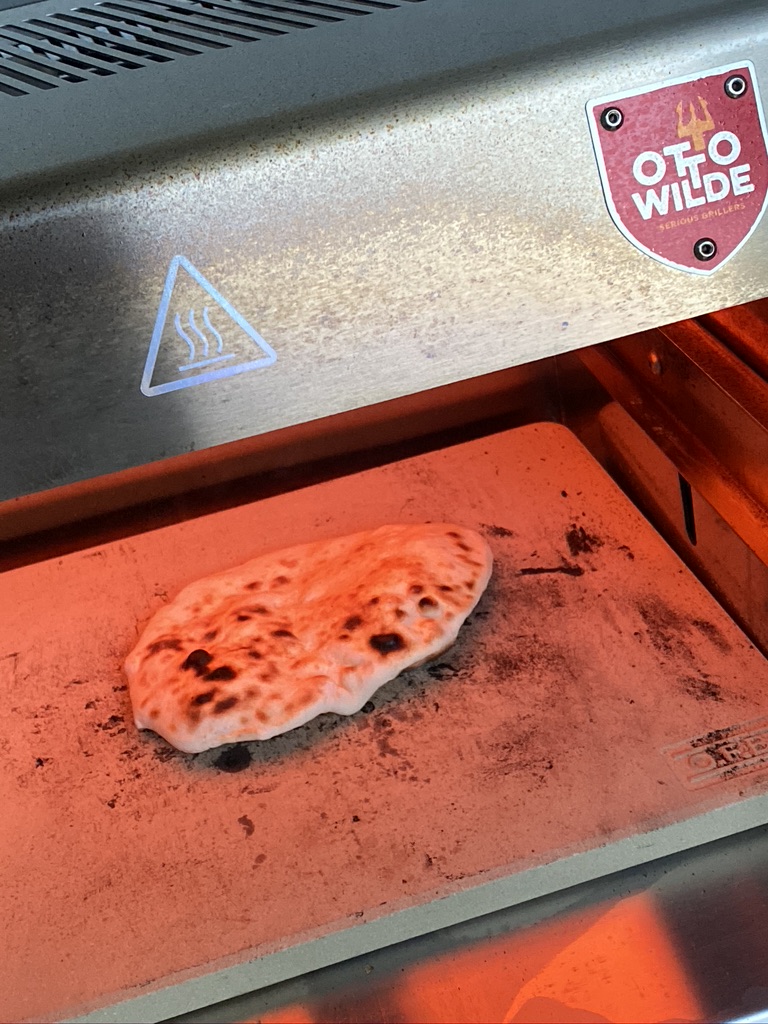
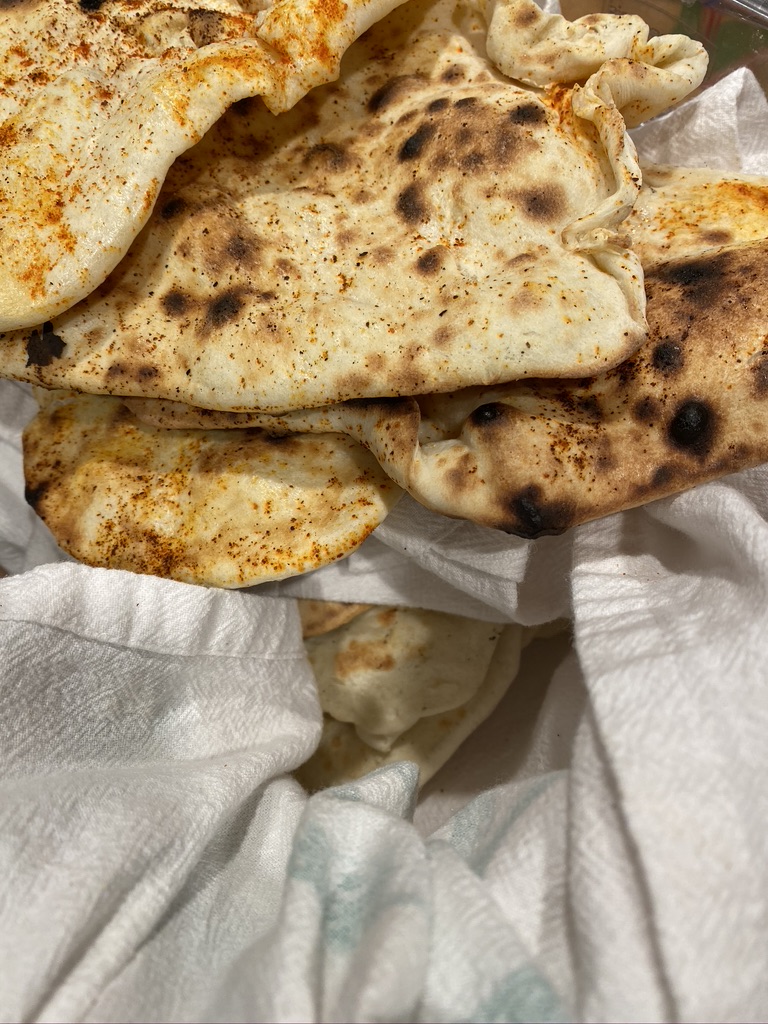
I did cook a beautiful batch of naan in it though which was lovely. It’s basically common sense. Anything in the flatbread family is going to do wonderful here, but stuff with toppings needs to be par baked because it’s so damn hot.
Other stuff
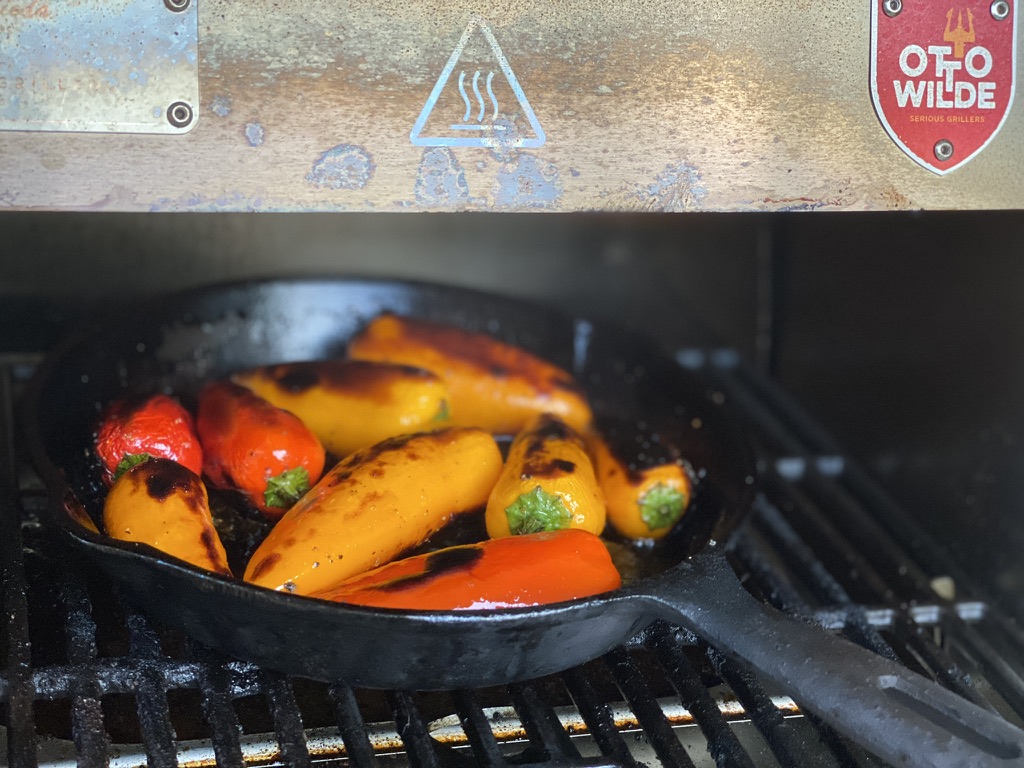
Can you cook other stuff in the Otto? Yeah, 100%. Basically anything you can throw in a cast iron pan and sear up will do well in the Otto. Examples I’ve tried include peppers and onions, fruit and veg medleys and crispy potatoes drizzled in oil. Because the cast iron gets nice and evenly hot and you have a top broiler it makes for an ideal searing environment. It is hot as hell even at the lower settings though, so you need to keep an eye on it.
Should you buy it?
Otto Wilde likely have their own ideas about the target market for their grills but for me it’s: has disposable income, loves steak enough to eat it 3x a week and already owns at least one or two other specialty grilling items. Basically, Big Green Egg owners. While something like a BGE is amazing at low and slow and smoking, it takes a hell of a lot to stoke and maintain the heat you’d need to get a caramelizing sear and in the end your steak would definitely be dryer.
The Otto Grill is basically the consumerized version of a commercial kitchen staple item. Could you buy something like a Salamander for like $1,300? Sure, but at that point you’re a commercial kitchen and you’re gonna need a natural gas plumb and probably a business license. Just rent a strip mall slot or a food truck.
Overall I found the design to be thoughtful, straightforward and reliable. Though I did have some ignition issues as described earlier, this is frank German engineering at its most utility-driven. The Otto Grill is expensive, but does precisely perform the task that it claims to make possible. I have cooked steaks by many different methods over the years and as I mentioned above, some of them are absolute stand-bys because they are really close to restaurant methodology. But for steakhouse style crust delivered absolutely consistently with the minimum of time and effort, the Otto Grill stands alone.
No comments:
Post a Comment